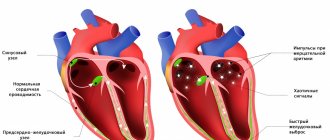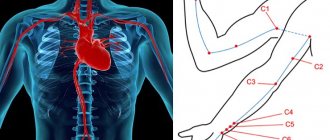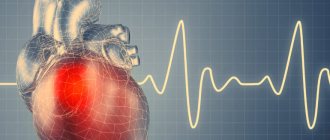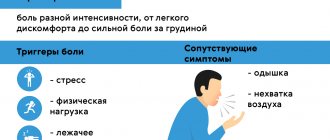home
Symptoms
Tingling in the lower abdomen
Prices Reviews Our specialists Make an appointment
All people, regardless of gender, experience a tingling sensation in the lower abdomen. It may indicate problems with the intestines or urinary system. In women, it can accompany natural processes without being a sign of illness. Such discomfort often occurs during menstruation and during pregnancy. But if the tingling is accompanied by severe pain, you should not hesitate to seek medical help.
Menstrual cycle and pregnancy
An unpleasant tingling sensation in the lower abdomen is observed before menstruation and in the middle of the menstrual cycle, which is associated with the process of ovulation. A slight tingling sensation is natural during the first trimester of pregnancy. If it becomes sharp or acute, a serious pathology may exist.
Often, tingling indicates that fetal development is occurring in the fallopian tube or abdominal cavity (ectopic pregnancy). In such a situation, urgent surgical removal of the fetus is required.
Inflammation of the appendages
The process of inflammation of the appendages also refers to purely female problems. The tingling sensation in the lower abdomen is accompanied by severe pain. At the same time, women experience increased drowsiness, loss of appetite, mood swings often occur, irritability and fatigue increase.
Appendicitis
The presence of tingling in the lower abdomen and pain, which is more often felt on the right side, may be symptoms of appendicitis. With the development of its acute form, a feeling of discomfort in the lower abdomen is replaced by sharp pain, the temperature often increases significantly, attacks of nausea and vomiting appear, and diarrhea is possible. In case of acute appendicitis, urgent assistance from a surgeon is required.
Crohn's disease
Soreness on the right side, combined with a tingling sensation in the lower abdomen, may signal dangerous Crohn's disease, which is caused by a malfunction of the immune system. As a result of the disease, inflammation of the intestine occurs, and its lining may be injured.
Tumors
Tingling combined with aching pain often accompanies the development of intestinal tumors of various natures. Pain during the development of tumor processes is localized on the right. Men and women suffer equally from the appearance of neoplasms. The success of treatment depends on early detection of the problem.
Diseases of the urinary system
Urinary tract diseases more often affect men. This is due to the structural features of the male urinary system. Such diseases are characterized by tingling, accompanied by attacks of pain. With the development of pathological phenomena in the upper urinary tract, pain and tingling radiate to the groin. The process of urination becomes painful. For the later stages of development of urolithiasis, it is possible to detect blood impurities in the urine.
It is necessary to listen to the signals that the body gives, reporting danger, and respond to them in a timely manner. By starting treatment for urolithiasis at an early stage, it will be possible to avoid the need to solve the problem with surgical methods, and treatment of other pathologies will be more effective.
Properties of acetylsalicylic acid
Crystalline white powder with a faint sour taste, which is pressed into tablets, or simply diluted with warm water. has many useful properties:
- Antipyretic. By suppressing the synthesis of prostaglandins in the thermoregulation center, blood vessels dilate and sweating increases. The decrease in body temperature occurs quite quickly, within 30-40 minutes. The effect lasts for several hours.
- Painkiller. Aspirin affects pain sensitivity centers and has a peripheral anti-inflammatory effect.
- Antithrombotic. Taking acetylsalicylic acid reduces the content of thromboxane A and slows down the adhesion of blood platelets. Increases the fibrinolytic properties of blood plasma, which promotes the resorption of blood clots and reduces the concentration of blood coagulation factors. vitamin K dependent.
- Anti-inflammatory. By reducing swelling and capillary permeability, hyaluronidase activity and suppressing ATP synthesis, the energy supply to the inflammatory process is limited. In acute inflammatory processes, taking aspirin allows doctors to slow down the expansion of the affected area and take emergency measures.
Diagnostics
Cervicalgia requires a clear identification of the cause of the pain. A full examination is especially necessary when neck pain is accompanied by neurological symptoms (dysfunction of the pelvic organs) or the pain is intense, there are sensory disturbances (numbness, tingling) or the pain lasts for more than a week of treatment at home.
During the examination, the doctor should assess the presence of painful points in the neck, range of motion in the neck, the presence of muscle spasms, the condition of the muscles of the neck and shoulders, the presence of muscle weakness, tension in muscle groups in the upper torso.
In some cases, instrumental studies such as X-rays, computed tomography (CT), magnetic resonance imaging (MRI), or ENMG (nerve fiber conduction testing) are necessary. These research methods help verify the diagnosis.
Indications for use of acetylsalicylic acid
The use of Aspirin can be indicated for various diseases, but the drug is most often recommended for:
- coronary heart disease and its prevention in the presence of risk factors;
- silent myocardial ischemia;
- unstable angina;
- after myocardial infarction to prevent complications and recurrent heart attacks;
- cerebral ischemia and ischemic stroke;
- as a prophylaxis for thromboembolism during mitral valve replacement;
- coronary artery stenting and angioplasty;
- atrial fibrillation;
- mitral valve prolapse;
- Kawasaki disease;
- recurrent pulmonary embolism;
- thrombophlebitis.
Despite its powerful anti-inflammatory and antipyretic properties, Aspirin is prescribed with caution in infectious and inflammatory processes. As an analgesic, the drug is used for myalgia, toothache, migraines, lumbago, neuralgia and thoracic radicular syndrome.
Allergists use aspirin to desensitize and increase the body's tolerance to non-steroidal anti-inflammatory drugs.
Symptoms
As a rule, neck pain is dull in nature. Sometimes the pain gets worse when you move your neck. Neck pain may be accompanied by numbness, tingling, sometimes the pain can be acute, there may be difficulty swallowing, enlarged lymph nodes, and dizziness.
Cervicalgia may be associated with facial headache, shoulder pain, or numbness or tingling in the shoulder (upper limb paresthesia). Such associated symptoms often result from root compression. For example, compression of a root with sensory fibers providing innervation to the occipital region can lead to neck pain radiating to the back of the head. Depending on the disease, in some cases, neck pain may be accompanied by pain in the upper back or lower back, for example with ankylosing spondylitis, when the inflammatory process covers the entire spine.
Limitations in use
Since acetylsalicylic acid interferes with thrombus formation, its use is undesirable in patients with impaired blood clotting functions, especially with hemophilia. Moreover. the drug has a negative effect on the mucous membranes and can provoke the development of gastric ulcers due to damage.
Aspirin can be used to a limited extent in different age groups, and is also completely prohibited for the treatment of certain categories of patients.
Use of the drug during pregnancy and lactation
In the first trimester of pregnancy, Aspirin is strictly prohibited, as it can have a significant effect on the formation of the fetal central nervous system, as well as provoke bleeding. threat of miscarriage and miscarriage. In the first 12 weeks of pregnancy, the patient is replaced with medications that are taken on a regular basis with the safest ones possible, and if there is a possibility of temporary withdrawal, all potentially dangerous medications are discontinued.
The third trimester of pregnancy also requires a complete ban on Aspirin, but here the drug threatens not only the formed fetus, but the health and life of the expectant mother. Impaired thrombosis function can lead to too much blood loss during childbirth and the death of the mother. For an unborn child, acetylsalicylic acid increases the risk of early closure of the aortic duct and cerebral hemorrhages.
Aspirin is limitedly approved for use from 4 to 6 months of pregnancy, provided that the benefit to the mother outweighs the potential risks to her and the fetus, only in minimal dosages and under medical supervision.
Acetisalicylic acid passes into breast milk, therefore, during lactation, the use of drugs based on it is allowed only when transferring the baby to formula milk.
Breastfeeding while taking Aspirin can cause liver and kidney failure, brain hemorrhages and internal bleeding in the newborn.
Aspirin for children under 15 years of age
The age limit for taking acetylsalicylic acid is introduced for many reasons:
- There is a high risk of internal bleeding in children under 5-7 years of age.
- Children under 14-15 years of age may experience damage to the mucous membranes of the stomach and intestines, and kidney failure.
- Symptoms of a drug overdose may appear even if the doses are strictly followed.
A complete restriction on taking Aspirin in powder and tablet form applies to children under 15 years of age. From reaching this age, the doctor can prescribe acetylsalicylic acid in a daily dose of up to 750 mg.
For patients of any age, it is important to observe the timing of administration - the drug is taken strictly after meals to minimize the risk of damage to the gastrointestinal tract.
Aspirin for hangover
People's love for Aspirin as an anti-hangover drug is associated with the effect of vasodilation and analgesic effect, which brings significant relief during withdrawal symptoms.
Unfortunately, the side effects of such “treatment” lead to liver damage and increase the risk of a critical decrease in blood pressure. If the patient has a history of gastritis or stomach ulcers, the risk of bleeding increases significantly.
Taking Aspirin together with alcohol is strictly contraindicated, since ethanol completely dissolves acetylsalicylic acid. Under the influence of the mixture, blood vessels begin to expand and contract, causing cell hypoxia and the risk of hemorrhages in the brain. Often the negative effects do not appear immediately, leading to irreversible damage.
Contraindications
In addition to the patient’s age and pregnancy period, there are a number of contraindications that must be reported to the doctor and the drug must be changed to avoid complications. Aspirin should not be prescribed for:
- Hemorrhagic diathesis and vasculitis;
- Gastritis;
- Peptic ulcer of the stomach and duodenum;
- Reduced blood clotting, tendency to bleeding;
- Vitamin K deficiency;
- Dissecting aortic aneurysm;
- Severe disorders of the kidneys and liver;
- Hemophilia;
- Individual intolerance to salicylates or allergic reactions to acetylsalicylic acid;
- Arterial hypertension, risks of hemorrhagic stroke.
In other cases, the prescription of acetylsalicylic acid does not pose a direct threat to life and health, but the doctor must decide on treatment with Aspirin.
In what cases is tingling in the joints safe?
If tingling attacks are one-time in nature or occur extremely rarely, there are probably no dangerous pathologies hidden behind them. This happens, for example, if:
- carry heavy things in your hands;
- hold your arms in an unnatural position for a long time, for example, above your head;
- when there is a sudden change in weather and jumps in atmospheric pressure;
- you were sleeping or sitting in an uncomfortable position.
Due to poor circulation, the joint becomes slightly numb - the person feels a subjective tingling sensation, which quickly passes as soon as the blood supply returns to normal. Unfortunately, this is not always the case.
If you have tingling sensations in your joints, it would be a good idea to consult a neurologist.
Difficult choice: how to protect mucous membranes
The antithrombotic properties of acetisalicylic acid are a salvation for patients with the threat of thromboembolism, stroke, ischemia of the heart and intestines. And at the same time, constant use of the drug causes significant harm to the digestive tract, causing a number of complications.
Concerned with this issue, pharmacists around the world are working to create drugs. which will not cause harm to health with constant use, while maintaining the beneficial properties of acetylsalicylic acid. Developments are progressing well, and several generations of safer connections have been released.
One of the most modern and safe for health preparations of acetylsalicylic acid, which fully preserves the antithrombotic effect, is Fazostabil. Antacid effect. protecting the mucous membranes of the stomach and intestines, achieved with the help of Magnesium hydroxide . Compared to Aspirin, the frequency of adverse reactions to the drug is significantly reduced.
prescribe a dosage schedule and minimally effective dosages of Fazostabil to prevent thrombosis and reduce the risks of pathologies from the cardiovascular system.
To monitor their health, patients taking acetylsalicylic acid for life should be regularly examined by a cardiologist and gastroenterologist, self-monitor for changes in blood pressure levels, and undergo annual blood tests to monitor fibrinogen and clotting factor levels.
How to help yourself with tingling joints
If the tingling sensations recur, listen to your body. You may also notice other unpleasant symptoms, such as morning stiffness. If the joints tingle only occasionally, complications can be prevented with the help of a special diet and vitamin therapy. Add these joint-healthy foods to your diet:
- Red fish and flax seeds. They are high in Omega-3, a substance that reduces inflammation and slows down the wear and tear of cartilage.
- Celery salad, juice or infusion. This product is a powerful antioxidant and is also used to remineralize and detoxify the body.
- Ginger. Regardless of the form, be it infusion, powder or spice, the product has a strong analgesic and anti-inflammatory effect.
- Nettle. It has cleansing properties, so nettle leaves can be rubbed on an affected or tingling joint, or you can add them to a salad.
“One nettle replaces seven doctors,” says popular wisdom. What are the benefits of this well-known plant for the body and joints?
None of the above folk remedies is a panacea for joint diseases. Sometimes tingling can develop into discomfort and constant aching pain, and an MRI will show arthrosis of the joints.
As a rule, in case of such complaints, the doctor orders an x-ray to rule out injury or prescribe effective treatment for osteoarthritis based on the results, and also recommends a detailed blood test. It will show the presence of inflammation in the body and help you draw the right conclusion.
Therefore, do not rush to write off this seemingly harmless symptom as an accident and be vigilant! Some diseases are very insidious and make themselves felt only in advanced stages.








